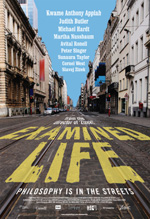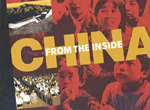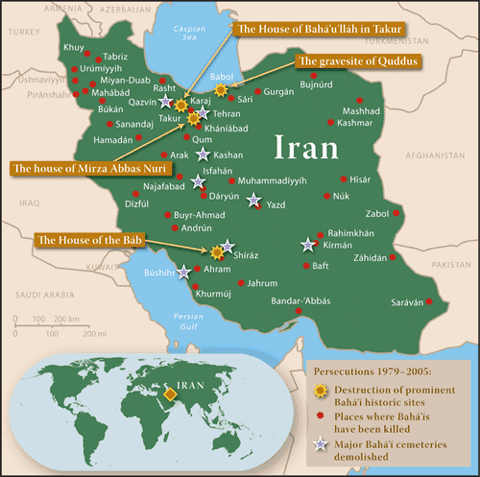
Home | About | Events | Gallery | Links | Join | Meetings
Past Events: 2012 2009 2008
 | Thursday, July 2, 2009 | 6pm 6-120FREE screening of Examined Life with free dinner and discussion led by MIT professor of Philosophy, Sally Haslanger"The unexamined life is not worth living." - Socrates More about the film hereSponsored by Amnesty International, Department of Linguistics and Philosophy, LSC, Graduate Student Life Grants, Graduate Student Council |
| Thursday, June 25, 2009 | 7:30pm W20-491Ali Banuazizi is a professor at BC. Ali is interested in political cultures of the Middle East; comparative study of religion, ethnicity, and politics in the Middle East and Central Asia; conceptions of equality and social justice; politics of martyrdom.Roy Mottahedeh's major work is on the pre-modern social and intellectual history of the Islamic Middle East. His publications include Loyalty and Leadership in an Early Islamic Society (1980) and The Mantle of the Prophet: Religion and Politics in Iran (1985). He is the faculty adviser of a new journal, The Harvard Middle Eastern and Islamic Review. He is currently working on the medieval Middle Eastern literature on "marvels." Nouradin Pirmoazen was a prominent reformist member of the Majilis. Dr Pirmoazen was leader and spokesman of reformist minority faction of parliament. Dr . Pirmoazen was prevented from rerunning in the 2008 elections by the council of guardians. Dr . Pirmoazen is currently a Research Fellow at Harvard Medical School, Mass General Hospital. | |
 | Human rights and the Iranian situation Tuesday, June 23, 2009 | 6pm Kresge AuditoriumThe situation In Iran has been in the news recently. In this panel we discuss the situation in Iran from the perspective of human rights, followed by a Q&A session and a vigil at 77 Mass Ave. Come and bring your friends and your questions. Presented with LSC and the Social Justice Cooperative.Nazanin Afshin-Jam is an international human rights activist and co-founder and President of Stop Child Executions organization. She holds a double major degree in International Relations and Political Science from the University of British Columbia with scholarship studies at L'Institute d'Etudes Politques in Paris.Dr. Haghighatjoo is a leading proponent of human and women's rights in Iran. Dr. Haghighatjoo served in the Iranian Parliament from 2000-2004 and was the first to resign when the anti-reform Guardian Council banned more than 2000 reformist candidates. She was president of the Student Movement Caucus and a deputy of the Mosharekat Caucus in the 6th Parliament. More recently, Dr. Haghighatjoo has held academic posts in the US, including Visiting Scholar at the Center for International Studies at MIT. |
 | Human Rights in the Occupied Palestinian Territories Wednesday, May 6, 2009 | 6:30pm 6-120Anat Biletzki has been teaching at the Philosophy Department in Tel Aviv University since 1979. She has traveled widely, as a visiting scholar and fellow at, among others, Cambridge University, Harvard University, Boston University, the Institute for Advanced Study at Princeton, and the Wittgenstein Archives in Bergen, Norway. Her publications include Paradoxes (1996); Talking Wolves: Thomas Hobbes on the Language of Politics and the Politics of Language (1997); What Is Logic? (2002); and (Over)Interpreting Wittgenstein (2003).Biletzki has been active in the peace movement and in several human rights projects in Israel for over 25 years. In 1997-1998, Biletzki helped establish the human rights movement "Open Doors" which worked on liberating Palestinian administrative detainees in Israel. She is on the board of Faculty for Israeli-Palestinian Peace,and was chairperson of the board of B'Tselem - the Israeli Information Center for Human Rights in the Occupied Territories, from 2001-2006. In 2005 she was chosen as one of "50 most influential women in Israel" by Globes, the Israeli business monthly, and was nominated among the "1000 Women for the Nobel Peace Prize 2005." |
 | China and the Environment Tuesday, April 7, 2009 | 6pm 4-237Join MIT Amnesty International for a movie and speaker addressing the environmental and human effects of rapid industrialization in emerging markets. Susan Murcott, founder of the 'Clean Water for 1 Billion People' initiative at MIT will be speaking about her involvement in the Chinese environmental movement as well as the situation there. This will be followed by a screening of the PBS documentary China from the Inside: Shifting Nature. DINNER will be served. |
 | Rediscovering Muslim Identity in Europe Thursday, March 19, 2009 | 6:30pm 66-110Moderator: Jamal Bakkai is a Professor of Arabic at Boston University. His formative years were spent in both Algeria and France before moving to the U.S.Dina Abkairova is a Lesly University Grad student in Intercultural Relations. She is currently working with AIC and the International Institute of Boston. Dina is a Secular Muslim and a Tatar, born and raised in Russia.Mehmet Ali Sanlikol is an award-winning composer, pianist, and vocalist. Sanlikol began playing music at the young age of five, eventually studying at the Berklee College of Music, as well as earning a Doctorate of Musical Arts Degree in Composition from the New England Conservatory. He has founded multiple bands and is currently the organizer of Dunya, a Turkish music group inspired by his native roots.Dr. Adnan Zubcevic is a Refugee and Immigrant Counselor at Massachusetts General Hospital in Chelsea. He is also the Executive Director of the Bosnian Community Center for Resource Development, Inc., in Lynn, MA. He is a past participant of Physicians Without Borders, where he worked to assess war-related trauma at refugee camps in Croatia. Zubcevic's interests focus on addressing the mental health and social needs of immigrants and refugee groups arriving in the U.S.Artistic Performance: Dunya Turkish Music is a cultural group which aims to present a wide range of Turkish traditions. From classical sufi music to Ottoman theater to popular Turkish music, Dunya's repertoire is large. Dunya also performs alongside other types of musical and cultural groups, so that the beauty and contrasts of each art type will appear more striking to their audiences. |
 | Persecution of the Bahá'í Faith in Iran Wednesday, March 11, 2009 | 7pm 4-231The Bahá'í Faith is the youngest of the world's independent monotheistic religions. Founded in Iran in 1844, it now has more than five million adherents in 236 countries and territories.One of the largest communities of Bahá'ís in the world is still located in Iran. However, the Bahá'í faith in Iran has long been persecuted as a minority faith in the Islamic Republic of Iran. While the persecution of Baha'is is longstanding in Iran, it recently (Feb 11) reached an unexpected new peak with charges of espionage and insulting Islam laid against seven members of the Iranian Bahá'í leadership who have been imprisoned for almost a year without any evidence supporting these accusations. The charge of espionage in Iran carries with it a potential death sentence.In this talk we will discuss the history of the Bahá'í persecution in Iran with emphasis on the current political situation and jeopardy of the Baha'i leadership. We will sign (optional) petitions calling for the freedom of these leaders.This event is hosted by MIT Amnesty, MIT Bahá'í Student Association and funded by a GSC grant. |
 | Combatants for Peace Monday, March 9, 2009 | 7pm 54-100Combatants for Peace is a group of Israeli soldiers and Palestinian fighters who have decided to lay down their arms and to realize their vision of resolving the conflict by peaceful means. Two Combatants representatives are coming to Boston to receive the "Courage of Conscience Award" at the Peace Abbey in Sherborne, MA on March 13, 2009.MIT Amnesty International, MIT Grad Hillel, MIT Students for Israel, the Arab Students Organization and the Addir Fellows program are hosting a presentation by Combatants for Peace, followed by a panel discussion. |
 | February 11, 2009 | 7pm 6-120A FREE Screening. The film will be preceded by a lecture by Nathaniel Raymond from Physicians for Human Rights. Mr. Raymond holds the title of Senior Communications Strategist with PHR and helped review PHR's landmark report on US torture policy, "Broken Laws, Broken Lives: Medical Evidence of Torture by US Personnel and its Impact." Cosponsored with LSC.Alex Gibney's Taxi to the Dark Side is a perpetually shocking documentary about the Bush administration's use of torture when dealing with political prisoners, with a particular focus on those captured in Iraq and Afghanistan. The title of Gibney's movie is derived from the treatment meted out to an Afghani taxi driver named Dilawar, who was mistakenly fingered as a terrorist, then killed during a torture session conducted by American troops. Despite the title, Dilawar's case is just a small part in Gibney's jigsaw, as the director uses excruciating and comprehensive details surrounding the taxi driver's death as a starting point in his search for the people who have permitted such incidents to occur.Gut-wrenching and fully uncensored pictures from Abu-Ghraib feature alongside interviews with military personnel (some of whom tortured Dilawar) as Gibney's search slowly heads into the upper echelons of the military and, ultimately, into the Bush regime itself.Taxi to the Dark Side is a powerful, well-executed piece of filmmaking. Gibney's skills as a director come to the fore as he manages to pull some surprisingly candid revelations from his subjects, while his choice of newsreel clips featuring the likes of Dick Cheney and Donald Rumsfeld are extremely well chosen. Perhaps the most eye-opening scenes come from a press trip to the U.S. facility at Guantanamo Bay, where Gibney and others are given a tour of the facilities, including the site gift shop, where gallows humor is stretched to breaking point with the sale of souvenir t-shirts bearing the legend Behavior Modification Instructor. The film concludes with Gibney pulling the focus back to Dilawar once again, highlighting the futility of his death as a number of commentators show how torture isn't, and never has been, an effective method for extracting information from people. |
Many Thanks!
Collaborators
Student Groups
Addir Fellows program
Arab Students Organization
MIT Bahá'í Student Association
Center for International Studies
Graduate Student Council
MIT Grad Hillel
Lecture Series Committee
Social Justice Cooperative
MIT Students for Israel Organizations Against Malaria Foundation
Boston4Bhopal
Unite For Sight
Arab Students Organization
MIT Bahá'í Student Association
Center for International Studies
Graduate Student Council
MIT Grad Hillel
Lecture Series Committee
Social Justice Cooperative
MIT Students for Israel Organizations Against Malaria Foundation
Boston4Bhopal
Unite For Sight